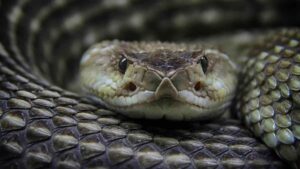
There has been one new case of the Mu variant of interest in England within the week leading up to 15 September 2021, the UK government has confirmed. This takes the total number of Mu cases in the UK to 54.
While this is the first new case to have been identified since 3 September, Public Health England and the World Health Organization (WHO) are still closely monitoring the strain.
Some scientists have warned that the Mu strain, also known as B.1.621, could be a problem if it were to become the dominant variant. This is due to the Mu variant having the ability to spread more easily through cells in the human body, something that is also seen in the Delta variant.
This finding comes from a pre-print paper, so is not conclusive and has not been peer-reviewed.
The researchers, who are based in Yokohama City University School of Medicine in Japan, say that possessing the same cell movement property as Delta, but having a higher proportion of escape from the vaccine means “Mu could especially be a problem if it would replace the Delta as the most predominant variant”.
“Despite this, the current vaccines and antibody cocktail would still work for the majority, albeit at a slightly lowered efficacy than currently observed with the Delta variant,” they say.
“The Mu variant was first reported in Colombia in January,” Dr Paúl Cárdenas, a specialist in infectious diseases, told BBC Science Focus. “We found it in May in Ecuador. It caught our attention as it has several mutations similar to Beta, and some with Iota, Delta, Alpha and Eta.”
Cárdenas says that within a few weeks the Mu strain had outcompeted the variants most common in Ecuador prior to Mu’s arrival.
“It has been found in many other countries of South America including Peru, Uruguay, Bolivia, Paraguay and Uruguay, and there have been small outbreaks from this variant in Spain, France and Florida, USA.”
Why has Mu been designated a variant of interest?
The Mu strain carries several mutation to the spike gene.
An article published in the Journal of Medical Virology states that some of Mu’s mutations are found in other variants of concern, while others are new. Researchers who studied the spread of Mu in Italy say that the strain has mutations that are also found in the variants of concern Alpha, Beta and Gamma.
According to the European Centre for Disease Prevention and Control, the Mu variant also carries a mutation which is found in the Delta variant. 
The WHO’s variant of interest designation means the strain has:
- genetic changes that are predicted or known to affect virus characteristics such as transmissibility, disease severity, immune escape, diagnostic or therapeutic escape
- been identified to cause significant community transmission or multiple COVID-19 clusters, in multiple countries with increasing relative prevalence alongside increasing number of cases over time
- may have other apparent epidemiological impacts to suggest an emerging risk to global public health.
How many cases of the Mu variant have been detected in the UK?
According to UK government data, there have been a total of 54 cases of the Mu COVID variant in the UK. This is broken down as 48 cases in England, 3 in Scotland, 2 in Northern Ireland and 1 in Wales.
The strain has been called VUI-21JUL-01 by Public Health England.
Will vaccines still work against the Mu variant?
There is not yet enough evidence to say conclusively whether the Mu variant will be able to evade protection from coronavirus vaccines.
The Japan study, published 26 September 2021, tested the effectiveness of the BioNTech-Pfizer vaccine against the Mu variant.
The study used samples from people who had been double jabbed, collected one week after their second dose.
Researchers found that while the effect of the Pfizer vaccine was reduced to 79 per cent (compared to 96 per cent effectiveness at neutralising the original COVID-19 strain), it “still possesses adequate ability to neutralise the majority of the [variants]”.
However, a study published in The Lancet Infectious Diseases on 13 August 2021 suggests that the Mu variant has “two cases of a potential vaccine-escape”.
They write that several of the spike mutations within Mu “have been reported to show reduced neutralisation by antibodies”.
The Mu variant was also found to have the same spike mutation that has been associated with a weakened vaccine response in the Beta variant.
“The presence of mutations associated with vaccine escape might warrant reclassification of this variant to a variant of concern.”
Is the Mu variant more transmissible?
There are currently very few studies looking into the Mu variant. As research on this specific variant is all in early stages, it’s too early to know whether the strain is more transmissible or more severe than other variants.
One pre-print study says that although the Mu strain is not yet classified as a ‘variant of concern’ by WHO (which means it is being more closely monitored than a variant of interest), the mutations found in the B.1.621 strain could have “a synergistic impact on attributes such as reduction of vaccine-induced protection from severe disease, increased transmission and disease severity”.
What are the symptoms of the Mu variant?
The Mu variant appears to have the same symptoms as all other coronavirus strains. The main symptoms of COVID-19, according to the NHS, are:
- a high temperature – this means you feel hot to touch on your chest or back (you do not need to measure your temperature)
- a new, continuous cough – this means coughing a lot for more than an hour, or three or more coughing episodes in 24 hours (if you usually have a cough, it may be worse than usual)
- a loss or change to your sense of smell or taste – this means you’ve noticed you cannot smell or taste anything, or things smell or taste different to normal
The NHS say that most people who have symptoms of COVID-19 will have at least one of the above.
What other variants have been identified in the UK?
As of 17 September 2021, there are five strains considered to be ‘of concern’ by PHE, including the Delta and Alpha variants.
The PHE are monitoring a total of 16 variants.
BBC Science Focus has contacted PHE for a comment on the spread of Mu.
About our expert, Dr Paúl Cárdenas
Dr Cárdenas is an associate professor at the Institute of Microbiology in the University of San Francisco de Quito. He has a PhD in Genomic Medicine from Imperial College London, and has published several papers thoroughout the pandemic on the detection and spread of COVID variants.
Amy is the Editorial Assistant at BBC Science Focus. Her BA degree specialised in science publishing and has been working as a journalist since graduating in 2018. In 2020, Amy was named Editorial Assistant of the Year by the British Society of Magazine Editors. She looks after all things books, culture and media. Her interests range from natural history and wildlife, to women in STEM and accessibility tech.




